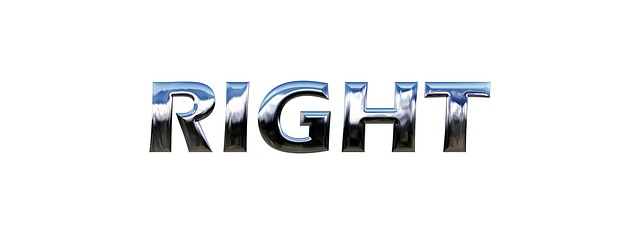Before insuring your business, assess unique needs by evaluating industry regulations, risks, revenue, and property value. Understand different coverage types (general liability, professional liability, property, workers' compensation) to tailor policies. Conduct regular risk assessments to keep insurance current. Compare options beyond cost, understanding deductibles' impact. Review policy exclusions to identify gaps in coverage. Choose an insurer with a solid reputation for reliability and customer satisfaction.
Choosing the right business insurance is a crucial step in safeguarding your investment, managing risks, and fostering customer trust. This comprehensive guide will walk you through essential aspects of selecting optimal coverage. First, understand your unique business needs and assess risk levels. Next, evaluate various types of coverage, compare policy costs and deductibles, and scrutinize exclusions. Finally, consider the reputation of your insurer and how it impacts customer confidence in your brand. By following these steps, you’ll make an informed decision on How to Choose the Right Business Insurance.
Understand Your Business Needs

Before diving into the world of business insurance, it’s crucial to understand your specific needs. Every business is unique, and what might be suitable for one could be inadequate or even excessive for another. Therefore, take time to assess your operations, revenue streams, and potential risks. Consider factors like industry regulations, liability concerns, property value, and the need for coverage during off-peak hours. This evaluation will ensure you don’t overpay for unnecessary coverage or overlook critical areas of protection.
Knowing your business needs is the foundation for making informed decisions when How to Choose the Right Business Insurance. It allows you to compare quotes effectively and select policies that align with your operations, providing peace of mind and financial security when unexpected events arise.
Evaluate Different Types of Coverage

When evaluating how to choose the right business insurance, understanding different types of coverage is essential. General liability insurance is crucial for protecting your business from claims related to property damage or personal injury on your premises. This type of coverage helps manage legal fees and potential compensation costs. Professional liability insurance, on the other hand, safeguards against claims arising from negligence in professional services, such as advice, treatments, or repairs.
Additionally, property insurance is vital for safeguarding assets like buildings, equipment, and inventory. Business owners should consider workers’ compensation insurance to protect employees injured on the job. Evaluating these coverage options and understanding their specific benefits will enable you to tailor your policy to meet your business’s unique needs, ensuring comprehensive protection in case of unforeseen events.
Assess Risk Levels and Potential Threats

When choosing the right business insurance, understanding your risk profile is paramount. Start by thoroughly assessing the potential threats and risks unique to your industry and business operations. Consider factors like location—whether in a high-crime area or prone to natural disasters—and the nature of your work. For instance, a construction site faces different hazards than an office space. Identify valuable assets like equipment, inventory, and data that require protection. Evaluate liability risks, such as potential customer injuries or property damage claims. Understanding these aspects will help you determine the necessary coverage levels and policy types to mitigate risks effectively.
Regular risk assessments are essential because business environments can change rapidly. New regulations, emerging trends, or unforeseen incidents might introduce new threats. Staying proactive by reevaluating risks periodically ensures your insurance stays aligned with your evolving needs. This process empowers you to make informed decisions when selecting policies, ensuring that your business is adequately protected without overspending on unnecessary coverage.
Compare Policy Costs and Deductibles

When evaluating business insurance policies, a key aspect is comparing costs and deductibles. Don’t be tempted to simply opt for the cheapest option; it’s crucial to understand what’s covered and the potential financial impact in case of a claim. Different policies have varying levels of coverage and deductibles, which can significantly affect your out-of-pocket expenses.
Deductibles represent the amount you’ll need to pay towards a claim before insurance covers the rest. Lower deductibles mean smaller initial costs but may result in higher premiums. Conversely, higher deductibles often come with lower premiums but require larger out-of-pocket payments during claims. Weigh these factors and choose a balance that aligns with your business’s financial capacity and risk tolerance to ensure you’re adequately protected without overspending.
Review Exclusions and Limitations

When evaluating business insurance, a crucial step is thoroughly reviewing the policy’s exclusions and limitations. These details specify what isn’t covered under your policy, which can include events like natural disasters, certain types of liability, or specific business activities. Understanding these exclusions helps you identify potential gaps in protection.
Paying close attention to exclusions allows business owners to make informed decisions about additional coverage they may need. By knowing what’s not included, you can choose the right policy that aligns with your business risks and requirements, ensuring adequate financial security for unexpected events or claims.
Consider Reputation and Customer Trust

When exploring how to choose the right business insurance, it’s crucial to consider the reputation and customer trust associated with potential providers. Opting for an insurer with a solid standing in the industry can offer immense reassurance. Reputable companies are more likely to maintain transparent practices, providing clear policy terms and exceptional customer service. This transparency fosters trust, knowing that your business interests are protected by professionals who uphold high ethical standards.
Moreover, positive reviews and satisfied customer testimonials serve as strong indicators of a reliable insurance provider. Such feedback reveals real-world experiences, highlighting the insurer’s responsiveness to claims, efficiency in processing them, and overall dedication to client satisfaction. Building a partnership with an esteemed insurance company strengthens your business’s resilience against unforeseen events, backed by a trusted ally in the industry.
